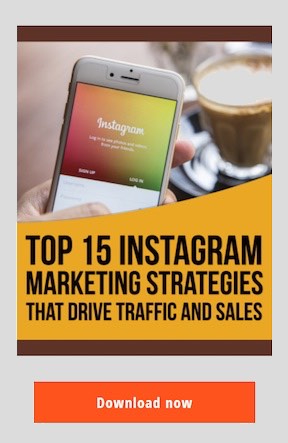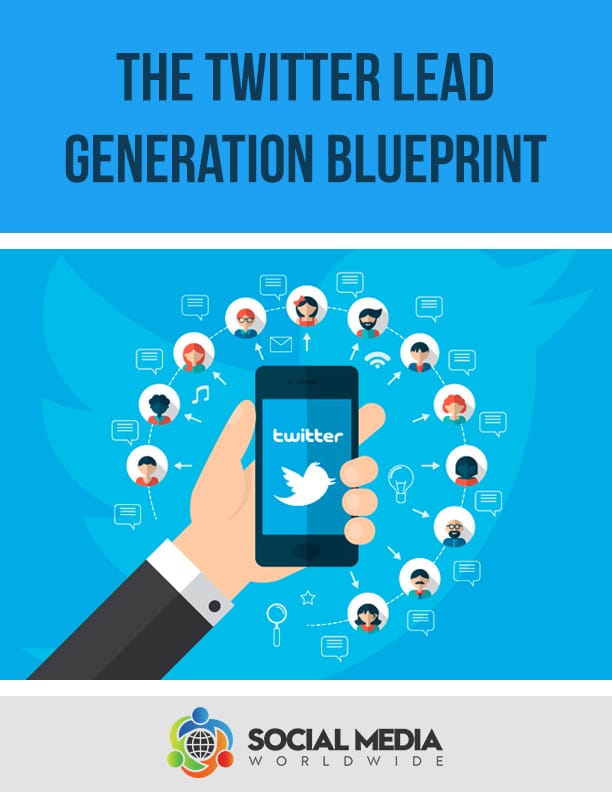
Featured image
Alt-tag: A close-up of two people working on laptops.
Modern digital marketing thrives on personalization, and few will argue otherwise. Still, following this ever-prominent marketing trend is easier said than done. Ensuring personalization takes ample manual labor, which not all teams can afford. As such, crafting effective personalized digital marketing campaigns with automation tools emerges as a potent solution.
In this post, we’ll explore practical strategies and techniques to help you leverage automation tools in the service of marketing personalization. These strategies should help you engage your audience more meaningfully and effectively, ensuring success and growth. So, let’s dive in!
The Synergy Among Personalized Digital Marketing Campaigns with Automation Tools
Initially, we must note that personalization lies in the seamless integration of website marketing, email marketing, and social media marketing. These three elements form a trifecta that, when combined effectively, can supercharge a brand’s online presence.
- Website marketing focuses on optimizing user experience and content relevance, ensuring that visitors find what they’re looking for effortlessly.
- Email marketing provides a direct line of communication with potential and existing customers, delivering tailored messages and promotions.
- Social media marketing capitalizes on platforms where your audience already spends their time, fostering engagement and brand loyalty.
Of course, how strongly you focus on these fronts must depend on your unique needs. Still, Movers Development emphasizes the importance of balancing these three pillars. They argue that overemphasizing one at the expense of the others can lead to missed opportunities.
For instance, a website that ranks high in search results won’t be as effective without a robust email marketing strategy to convert visitors into customers. Similarly, a strong social media presence can amplify brand visibility, but it requires a well-structured website to direct engaged users toward conversions.
Leveraging Automation Tools to Maximize Digital Marketing Personalization
With the above in mind, let’s delve into each of these pillars in due depth.
#1 Email Marketing Tools vs. Email Automation: Finding the Perfect Synergy
First on the list is email marketing. If you strive to create personalized digital marketing campaigns with automation tools, email will likely cross your mind first. This channel boasts immense ROI and remains the king of marketing for most.
Still, it comes with two distinct tools you can employ – and the two often see comparisons.
Leveraging Email Marketing Tools
First, email marketing tools are indispensable for businesses looking to connect with their audience effectively. These tools offer a range of features, including list management and segmentation, content creation and design, and detailed campaign tracking and analytics. With list management, businesses can organize their contacts based on various criteria, allowing for targeted messaging. Content creation tools simplify the process of designing visually appealing and engaging emails. Additionally, tracking and analytics provide valuable insights into open rates, click-through rates, and conversion metrics, enabling businesses to refine their strategies for better results.
Embracing Email Automation for Efficiency
Conversely, email automation tools offer a range of different features. A staple of marketing automation themselves, these tools provide functionalities like drip campaigns and autoresponders, behavior-based triggers, and A/B testing. Drip campaigns allow businesses to send a series of pre-scheduled emails to nurture leads or onboard new customers. Behavior-based triggers, on the other hand, automatically send emails in response to specific actions taken by the recipient, ensuring timely and relevant communication. A/B testing enables businesses to experiment with different email elements to determine which versions resonate best with their audience.
The Synergy: How Email Marketing Tools and Automation Work Together
With the above in mind, creating personalized digital marketing campaigns with automation tools can only benefit from both tools. Consider just how deeply their synergy goes:
- Segmenting audiences for targeted messaging is pivotal in seamlessly integrating email marketing tools and automation. It allows businesses to categorize their contacts based on specific criteria, ensuring that each group receives messages tailored to them. This means that recipients are more likely to engage with content that resonates with them, leading to higher conversion rates and customer satisfaction.
- Streamlining follow-up sequences is another area where these tools work in harmony. Automation allows businesses to set up triggered responses based on user actions, ensuring no lead or customer falls through the cracks. This timely follow-up demonstrates attentiveness and increases the likelihood of conversion.
- Lastly, personalizing content for maximum engagement is the crown jewel of this collaboration. With automation, businesses can dynamically insert individual recipient details, such as names or specific preferences, creating a one-to-one connection. This level of personalization fosters trust and loyalty, leading to long-lasting customer relationships.
So, there’s no email marketing tools vs email automation debate since these two tools together can benefit your business in many ways. By combining both strengths, businesses can create highly targeted, timely, and personalized email campaigns that resonate with audiences.
#2 Crafting Engaging Social Media Campaigns with Automation Tools
The second pillar of creating personalized digital marketing campaigns with automation tools lies in social media marketing. This type of marketing boasts immense efficiency as more and more audiences flock to social media.
Personalization in Social Media Campaigns
However, social media feeds are crowded, so tailoring content to audience preferences is key. This means understanding what your audience likes, shares and engages with and creating content that aligns with those interests. It ensures that your posts resonate with them and are more likely to capture their attention.
Tools like social media schedulers allow you to plan and publish posts when your audience is most active, increasing the likelihood of engagement. Audience segmentation tools help categorize followers based on their interests and behaviors, enabling you to deliver tailored content. Social media listening tools also track conversations and mentions related to your brand, providing insights into what your audience is discussing and interested in. These insights inform your content, ensuring it aligns with their preferences. Furthermore, chatbots and automated messaging tools enable personalized interactions, offering immediate responses to inquiries and guiding users based on their needs.
By harnessing these automation tools, businesses can effectively personalize their social media campaigns, leading to higher engagement and stronger connections.
Integrating Social Media with Email Marketing and Automation
Crafting personalized digital marketing campaigns with automation tools requires synergy among the three pillars. Thankfully, integrating social media with email marketing and automation creates a powerful synergy for cohesive campaigns:
- Firstly, cross-promoting content ensures a consistent message across platforms. You maximize your reach and engage a wider audience by sharing relevant email content on social media and vice versa.
- Using social media to drive email sign-ups is another strategic move. Promoting your email list on social platforms encourages followers to subscribe. This expands your subscriber base and allows for direct communication with potential customers.
- Finally, analyzing data is crucial for refining your strategies. Both social media and email marketing platforms offer valuable insights. You gain useful information to adjust and optimize your campaigns for better results by tracking metrics like engagement rates, click-throughs, and conversions.
This integration fosters a holistic approach to reaching and engaging your audience, ultimately driving higher conversions and strengthening customer relationships.
#3 Maximizing SEO Strategies for Personalized Marketing Success
Lastly, the third pillar of this trifecta comes in SEO. The impact of SEO on digital marketing is well-known, so its value should be self-evident. In the digital age, online visibility hinges on SEO. Crafting personalized digital marketing campaigns with automation tools must also account for SEO.
Personalization in SEO Efforts
Indeed, maximizing SEO strategies is vital for personalized marketing success. Thankfully, amply established strategies can help in this regard:
- First, creating targeted landing pages tailored to specific audience segments ensures visitors quickly find the most relevant information. This improves user experience and increases the likelihood of conversions.
- Customizing meta descriptions and titles is equally important. These elements appear in search results and provide users with a preview of what your page offers. You increase the chances of attracting clicks and visits by tailoring them to match user intent and preferences.
- Implementing schema markup is another key practice. It provides search engines with additional context about your content, enhancing your appearance in search results. This can lead to higher visibility and improved click-through rates.
Incorporating these personalized SEO strategies into your marketing efforts can enhance your online presence and connect with your target audience more effectively.
Harnessing Automation for SEO Success
That said, SEO is hard work; harnessing automation is often key to achieving SEO success. Here, consider the following examples and how they can enhance personalized digital marketing campaigns with automation tools:
- Firstly, automated keyword tracking and rank monitoring tools help keep tabs on how your website performs in search results. This enables you to identify improvement areas and track your optimization efforts’ effectiveness.
- Additionally, utilizing AI tools for content optimization can be a game-changer. These tools analyze data and user behavior to suggest improvements to your content. This ensures that your content is well-written and resonates with your target audience.
- Furthermore, automating backlink management and outreach is crucial for building a strong online presence. Automated tools can identify potential link-building opportunities and streamline outreach, saving time and ensuring a consistent approach.
By incorporating automation into your SEO strategy, you can efficiently manage key aspects of your optimization efforts. As you do, you can streamline SEO, email marketing, and social media marketing to build a robust personalized marketing foundation.
Final Thoughts
In conclusion, mastering the art of personalized digital marketing campaigns with automation tools is the cornerstone of modern marketing success. Businesses can create highly targeted and engaging campaigns that resonate with their audience by seamlessly integrating email marketing, social media, and SEO strategies.



Recent Comments